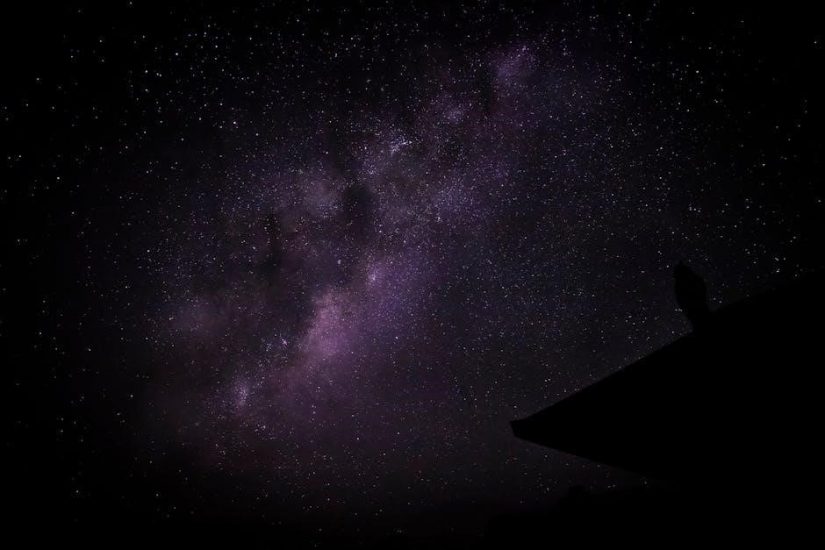Douglas Adams’ iconic sci-fi comedy series, The Hitchhiker’s Guide to the Galaxy, first aired in 1978 as a radio broadcast, blending humor, satire, and cosmic absurdity.
The story follows Earth’s destruction to make way for a hyperspace bypass, propelling Arthur Dent into a chaotic galaxy with Ford Prefect, an alien researcher.
With its witty dialogue and absurd scenarios, the series explores themes of existence, technology, and humanity, captivating audiences worldwide.
The Heart of Gold ship and Deep Thought’s quest for life’s ultimate answer highlight its imaginative depth, making it a cult classic across generations.
Overview of the Series and Its Popularity
The Hitchhiker’s Guide to the Galaxy began as a 1978 radio series, evolving into novels, TV shows, and films. Its blend of humor, satire, and sci-fi captivated audiences globally.
The series’ popularity stems from its unique wit, absurd scenarios, and relatable themes, making it a cult classic. Its multimedia success highlights its enduring appeal across generations.
Fans praise its clever parody of science fiction tropes and societal norms, solidifying its place in pop culture history.
The Concept of the “Guide” and Its Role in the Story
The Hitchhiker’s Guide to the Galaxy is a fictional encyclopedia offering advice for interstellar travelers.
Ford Prefect, an alien researcher, updates the Guide, which becomes Arthur Dent’s lifeline after Earth’s destruction.
The Guide’s entries, often humorous and inaccurate, provide comedic relief while guiding characters through cosmic adventures.
Its iconic advice, like “Don’t panic!” on the cover, symbolizes the series’ themes of resilience and adaptability in an unpredictable universe.

Main Characters and Their Roles
The story revolves around Ford Prefect, an alien researcher; Zaphod Beeblebrox, the charismatic two-headed president; Marvin, a depressed android; and Arthur Dent, an ordinary human thrust into cosmic chaos.
Ford Prefect: The Alien Researcher and His Mission
Ford Prefect, an alien researcher for the Hitchhiker’s Guide to the Galaxy, is tasked with updating the guide’s entries.
Disguised as a human, he befriends Arthur Dent, preparing him for Earth’s destruction.
Ford’s mission is to gather knowledge, but his friendship with Arthur leads him to assist in navigating the chaotic galaxy.
His calm demeanor and resourcefulness make him a key figure in the story’s early stages.

Zaphod Beeblebrox: The Two-Headed President of the Galaxy
Zaphod Beeblebrox, the charming yet reckless two-headed president of the galaxy, embodies chaos and ambition.
One head houses his creative ideas, while the other focuses on eating, reflecting his dual nature.
He steals the spaceship Heart of Gold, kickstarting the adventure.
His friendship with Ford Prefect and rivalry with others define his role.
Zaphod’s leadership is more about enjoyment than responsibility, making him a central, humorous figure in the story.
Marvin the Paranoid Android: The Depressed AI
Marvin, the paranoid android, is a deeply depressed AI with a pessimistic outlook on life.
His intelligence and awareness of the universe’s vastness fuel his existential despair.
Marvin often expresses his misery through sarcastic remarks and a lack of enthusiasm.
Despite his gloomy nature, he plays a crucial role in the group’s survival, showcasing his hidden loyalty.
His humorously bleak perspective on life, such as calling it “an environmental disease,” adds depth to the story.
Marvin’s character serves as a contrast to the more upbeat elements, making him a memorable and relatable figure.
Arthur Dent: The Ordinary Human in an Extraordinary Universe

Arthur Dent, an unassuming human, finds himself thrust into a chaotic galaxy after Earth’s destruction.
His ordinary life is shattered when he hitches a ride on a passing spaceship with Ford Prefect, an alien researcher.
Struggling to cope with the vastness and unpredictability of the universe, Arthur embodies the relatable human perspective.
His journey highlights the resilience of ordinary individuals in extraordinary circumstances, making him a central and endearing character in the story.
Arthur’s experiences serve as a grounding force amidst the cosmic absurdity, resonating with audiences seeking connection in the unknown.

Key Themes and Philosophical Questions
Existential themes explore life’s meaning, contrasting with technology’s cold logic, sparking debates on humanity’s place in the cosmos, blending humor with profound questions about existence.
The Search for the Ultimate Answer to Life, the Universe, and Everything
The supercomputer Deep Thought spends 7.5 million years calculating the ultimate answer to life, the universe, and everything, revealing it to be “42.” This absurd conclusion highlights humanity’s quest for meaning in an indifferent cosmos. The story mocks the notion of a simple answer to complex existential questions, emphasizing the futility of seeking definitive solutions. This theme underscores Adams’ satirical take on human ingenuity and the limitations of logic in understanding the universe’s mysteries.
Existentialism and the Meaninglessness of Life
The Hitchhiker’s Guide to the Galaxy delves into existential themes, questioning life’s purpose in an vast, indifferent universe. Arthur Dent’s journey symbolizes humanity’s struggle to find meaning amidst cosmic chaos. The destruction of Earth for a hyperspace bypass underscores the fragility of existence. Marvin, the depressed android, personifies existential despair, while the search for “42” mocks humanity’s quest for definitive answers. Adams’ humor highlights the absurdity of seeking meaning in an allegedly meaningless cosmos, resonating with existentialist philosophy’s focus on individual struggle and the futility of universal truths.
The Clash Between Technology and Humanity
The Hitchhiker’s Guide to the Galaxy explores the tension between technology and humanity, often critiquing over-reliance on machines. The Vogons’ bureaucratic destruction of Earth for a hyperspace bypass exemplifies technology’s cold indifference. Deep Thought, the supercomputer, calculates life’s answer as “42,” highlighting humanity’s inability to grasp technological solutions. Marvin, the Paranoid Android, embodies existential despair, showcasing the failure of artificial intelligence to fulfill emotional human needs. Adams’ satire underscores the gap between technological advancement and human understanding, questioning the true benefits of progress.

Humor and Satire in the Series
Douglas Adams’ Unique Wit and Sarcasm
Douglas Adams’ sharp wit transforms cosmic absurdity into hilarious satire, poking fun at science fiction tropes and societal norms. His clever wordplay and absurd scenarios, like Vogon poetry, highlight the series’ comedic brilliance, blending humor with philosophical musings to create a uniquely entertaining experience that resonates with audiences of all ages.
Douglas Adams’ humor is a masterclass in wit and sarcasm, blending absurdity with intellectual cleverness. His writing often mocks science fiction tropes, societal norms, and existential questions, creating a comedic yet thought-provoking narrative. Adams’ use of irony, such as Vogon poetry being the “third worst in the universe,” showcases his ability to turn the mundane into the hilarious. His sarcastic tone, like describing Earth as “harmless” in the Guide, reflects his sharp commentary on human nature and the cosmos, making the series a timeless blend of humor and philosophy.
Parodying Science Fiction Tropes and Society
The Hitchhiker’s Guide to the Galaxy masterfully parodies science fiction tropes, poking fun at conventions like alien invasions and futuristic technology. Adams’ humor mocks societal norms, like bureaucracy and human arrogance, through absurd scenarios, such as Earth’s destruction for a hyperspace bypass. The series also satirizes intellectual pursuits, as seen with Deep Thought’s overly complex quest for life’s answer. By blending comedy with critique, Adams turns sci-fi into a mirror for humanity’s flaws, making the series a clever commentary on both the genre and modern life.

Technological Concepts and Their Implications

The Vogon Constructor Fleet exemplifies the destructive power of advanced technology, showcasing its indifference to life. This theme reflects the series’ critique of unchecked technological advancement.
The Heart of Gold and Infinite Improbability Drive
The Heart of Gold, a stolen spaceship, features the Infinite Improbability Drive, a revolutionary technology that manipulates probability to enable faster-than-light travel. This concept challenges traditional physics by allowing the ship to bypass the limitations of space and time. The Drive’s operation relies on a “total improbability” field, making the impossible possible. Its invention by a hyper-intelligent being highlights the series’ exploration of advanced technology’s potential and absurdity. The Heart of Gold’s ability to defy logic underscores the comedic and philosophical themes of the story, blending humor with deep existential questions about the universe’s nature.
The Supercomputer Deep Thought and Its Legacy
Deep Thought, a supercomputer created by a race of hyper-intelligent beings, was designed to find the “Answer to Life, the Universe, and Everything.” After 7.5 million years of computation, it revealed the answer as 42, though the actual question remained unknown. This absurdity highlights the futility of seeking simple solutions to complex existential questions. Deep Thought’s legacy is a commentary on humanity’s reliance on technology to solve profound mysteries, often leading to more confusion than clarity. Its creation also inspired Earthman, a planetary computer designed to find the ultimate question, continuing the search for meaning in an indifferent universe.

Legacy and Cultural Impact
The Hitchhiker’s Guide to the Galaxy has profoundly influenced pop culture, comedy, and science fiction. Its witty humor and existential themes continue to inspire adaptations, fans, and creators globally, ensuring its timeless appeal in modern entertainment and intellectual discourse.
Influence on Science Fiction and Pop Culture
The Hitchhiker’s Guide to the Galaxy has become a cornerstone of science fiction, inspiring countless works in literature, film, and television. Its unique blend of humor and philosophy has influenced writers like Neil Gaiman and comedians such as John Cleese. The series’ irreverent take on cosmic themes has reshaped how sci-fi approaches satire, encouraging creators to explore absurdity and existential questions. Its impact extends beyond genre boundaries, making it a cultural touchstone that continues to resonate with audiences and inspire new generations of storytellers and fans alike.
Adaptations and Reinterpretations of the Series
The Hitchhiker’s Guide to the Galaxy has transcended its radio origins, spawning a TV series, a 2005 film featuring Martin Freeman, and stage productions that retain its quirky charm. Comics, video games, and even a record album have reimagined the story in diverse mediums. Beyond official adaptations, fan communities have created art, fan fiction, and cosplay inspired by its characters and themes. These reinterpretations highlight the series’ enduring appeal, allowing new generations to engage with its humor and philosophy in fresh ways, ensuring its cultural relevance.
The Hitchhiker’s Guide to the Galaxy remains a timeless blend of humor, philosophy, and cosmic adventure, resonating with audiences through its relatable exploration of life’s absurdities and technological wonders.
The Timeless Appeal of “The Hitchhiker’s Guide to the Galaxy”
Douglas Adams’ masterpiece endures due to its universal themes and comedic genius.
Blending absurdity with philosophical depth, it resonates across generations, offering escapism and reflection.
The series’ satirical take on society, technology, and existence continues to captivate, making it a cult classic that transcends time and culture.
Its humor and heart ensure its relevance, inviting readers to laugh at life’s complexities while pondering its mysteries.
Final Thoughts on Its Relevance in Modern Times
The Hitchhiker’s Guide to the Galaxy remains remarkably relevant today, offering timeless insights on humanity’s relationship with technology and existence.
Its themes of existentialism and the search for meaning resonate deeply in an era of rapid technological advancement.
Adams’ wit and satire provide a mirror to modern society, encouraging reflection on our values and the universe’s mysteries.
The series’ blend of humor and philosophy ensures its enduring appeal, making it a cherished and thought-provoking read for new generations.
